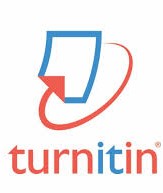Strategy Management of Waterboom Bali Tourism Object In The New Normal Tourism Era
Abstract
The Pandemic COVID-19 has had a huge impact on the tourism industry. Waterboom Bali tourist attraction as one of the largest water recreation facilities in Bali has also not escaped the impact of the pandemic. In order to continue to operate and maintain the sustainability of tourism objects, they must be able to live in peace with the Covid-19 virus. This study aims to determine the application of health protocols and tourism management strategies in the new normal era of tourism. Methods of data collection are done by observation, interviews, literature study, and documentation. The sampling technique used was Accidental Sampling. The data analysis method uses data triangulation, namely the triangulation method. The results of this study are that the implementation of the CHSE health protocol has been very good for tourists and workers. Implementation of health protocols in the form of check-in for eligibility to enter tourist destinations on the PeduliLindungi application, checking body temperature, using complete personal protective equipment, and Sanitation Team for periodic environmental cleaning. The management strategy in the new normal of tourism is in the form of promoting ticket prices according to tourist classifications and operating schedules only on weekends.
Keywords
Full Text:
PDFReferences
Purwahita, R.M.,Wardhana, P.B.W., Ardiasa, I.K. & Winia, I.M. (2021). Dampak Covid-19 terhadap Pariwisata Bali Ditinjau dari Sektor Sosial, Ekonomi, dan Lingkungan (Sebuah Tinjauan Pustaka). Jurnal Kajian Dan Terapan Pariwisata, 1(2). https://doi.org/10.53356/diparojs.v1i2.29
Arjana, I. G.B. (2015). Geografi Pariwisata dan Ekonomi Kreatif. Jakarta: Rajawali Pers.
Cooper, C., Fletcher, J., Gilbert, D.G. and Wanhill, S. (2005). Tourism; Principle and Practive, Third Edition, Harlow. Prentice Hall. New York
Eddy, G. & Aberar, G. (2020). Covid-19 Impact: Indonesia Tourism in New Normal Era. International Journal of Management and Humanities, 4(11). https://doi.org/10.35940/ijmh.k1049.0741120
Ernie, T.S. & Saefullah, K. (2008). Pengantar Manajemen. Kencana Prenada Media Group. Jakarta.
Hasibuan, M. S.P. (2009). Manajemen Dasar, Pengertian, Dan Masalah. Jakarta: PT Bumi Aksara.
Kim, A.K. and Brown, G. (2012). Understanding the relationships between perceived travel experiences, overall satisfaction, and destination loyalty, Anatolia: An International Journal of Tourism and Hospitality Research, Vol. 23 No. 3, pp. 328-347.
Kementrian Pariwisata Republik Indonesia. (2020). Pedoman pelaksanaan CHSE. https://chse.kemenparekraf.go.id/pedoman diakses tanggal 6 Januari 2022
Keputusan Menteri Kesehatan Republik Indonesia Nomor HK.0107/MENKES/382/2020 tentang Protokol kesehatan bagi masyarakat di tempat dan fasilitas umum dalam rangka pencegahan dan pengendalian corona virus disease 2019 (covid-19),
Margono, S. (2005). Metodologi Penelitian Pendidikan. Jakarta: PT. Rineka Cipta.
Peraturan Pemerintah Nomor. 50 tahun 2012 tentang Penerapan Sistem Manajemen Keselamatan dan Kesehatan Kerja.
Peraturan Pemerintah Nomor. 66 tahun 2014 tentang Kesehatan Lingkungan.
Suwarni, S., Siti Khadijah, U. L., & Rachmat, H. (2021). The Development Strategy of Educational Tourism at Rumah Atsiri Indonesia In The Era of Adapting To A New Normal. Sosiohumaniora, 23(1). https://doi.org/10.24198/sosiohumaniora.v23i1.31668
Sandy, Q.A.P. & Rahanatha, G.B. (2016). Studi Perilaku Pasca Kunjungan Wisatawan dilihat dari Karakteristik Demografi dan Budaya Di Waterbom Bali. E-Jurnal Manajemen Unud, Vol. 5, No.7, 2016: 4193 - 4223 ISSN: 2302-8912 4193.
Sugiyono. (2016). Metode Penelitian Kuantitatif, Kualitatif dan R&D. Bandung:Alfabeta.
Teguh,F.(2015). Tata Kelola Destinasi Membangun Ekosistem Pariwisata. Yogyakarta: Gadjah Mada University Press.
Tuohino, A., & Konu, H. (2014). Local stakeholders’ views about destination management: Who are leading tourism development?,Tourism Review of AIEST – International Association of Scientific Experts in Tourism, 69(3), 202-215. doi:http://dx.doi.org/10.1108/TR-06-2013-0033.
Undang-undang Republik Indonesia Nomor. 1 tahun 1970 tentang Keselamatan Kerja.
Undang-undang Republik Indonesia Nomor. 10 tahun 2009 tentang Kepariwisataan.
Utama, I. G. B. R., Junaedi, I. W. R., Krismawintari, N. P. D., Pramono, J., & Laba, I. N. (2020). New Normal Acceleration Strategy for Bali Tourism Destination Recovery with E-Tourism and Special Health Protocol for the Tourism Sector. Technium Social Sciences Journal, 10. https://doi.org/10.47577/tssj.v10i1.1332
DOI: http://dx.doi.org/10.30813/jhp.v8i1.3189
Refbacks
- There are currently no refbacks.
.png)




